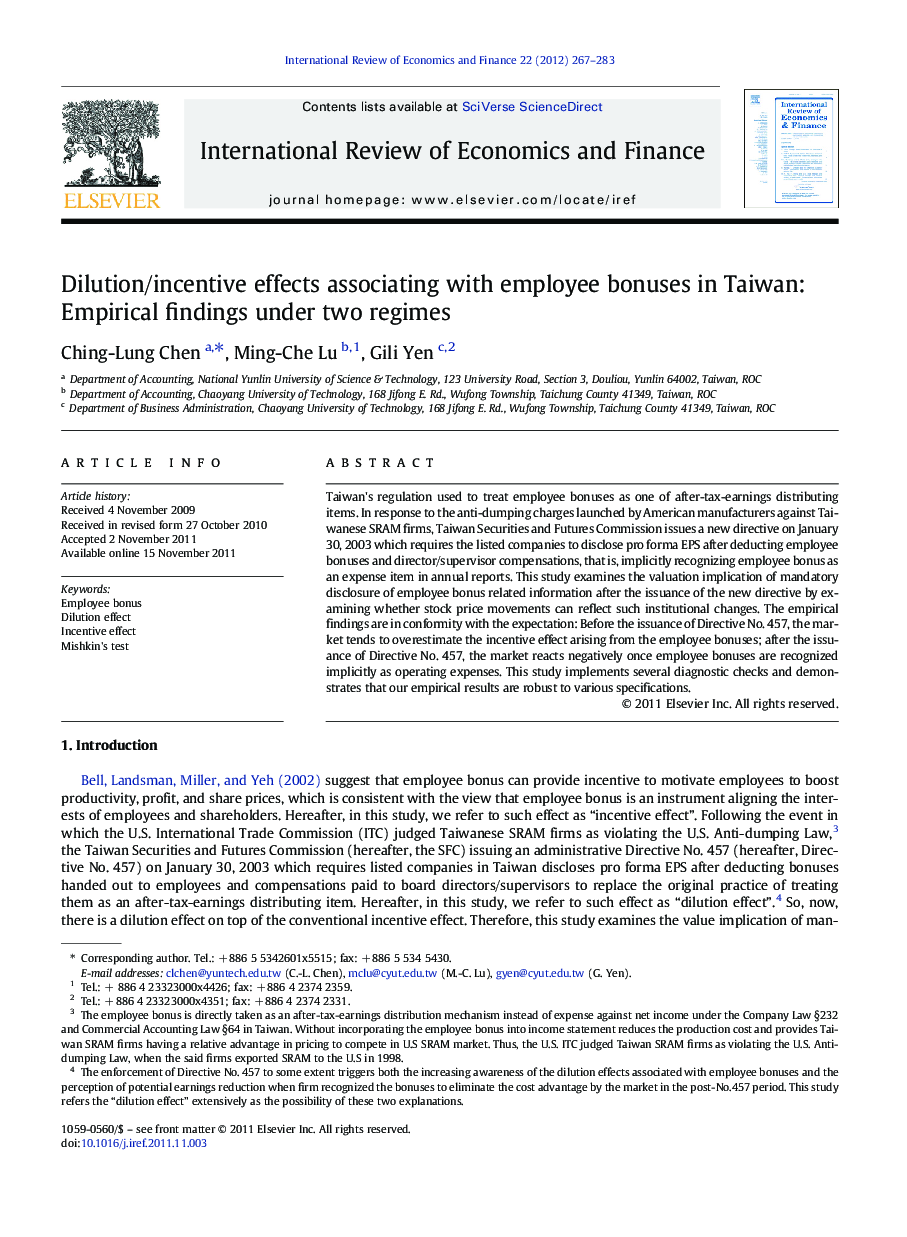| Article ID | Journal | Published Year | Pages | File Type |
|---|---|---|---|---|
| 5083782 | International Review of Economics & Finance | 2012 | 17 Pages |
Abstract
Taiwan's regulation used to treat employee bonuses as one of after-tax-earnings distributing items. In response to the anti-dumping charges launched by American manufacturers against Taiwanese SRAM firms, Taiwan Securities and Futures Commission issues a new directive on January 30, 2003 which requires the listed companies to disclose pro forma EPS after deducting employee bonuses and director/supervisor compensations, that is, implicitly recognizing employee bonus as an expense item in annual reports. This study examines the valuation implication of mandatory disclosure of employee bonus related information after the issuance of the new directive by examining whether stock price movements can reflect such institutional changes. The empirical findings are in conformity with the expectation: Before the issuance of Directive No. 457, the market tends to overestimate the incentive effect arising from the employee bonuses; after the issuance of Directive No. 457, the market reacts negatively once employee bonuses are recognized implicitly as operating expenses. This study implements several diagnostic checks and demonstrates that our empirical results are robust to various specifications.
Keywords
Related Topics
Social Sciences and Humanities
Economics, Econometrics and Finance
Economics and Econometrics
Authors
Ching-Lung Chen, Ming-Che Lu, Gili Yen,
